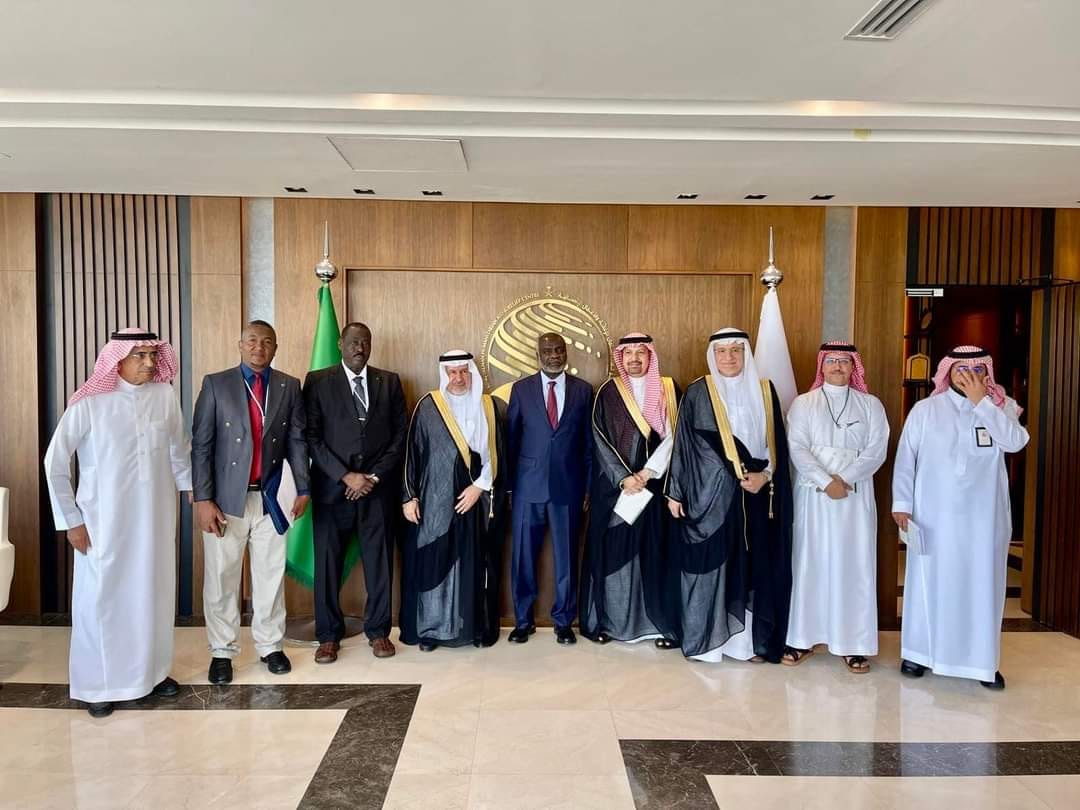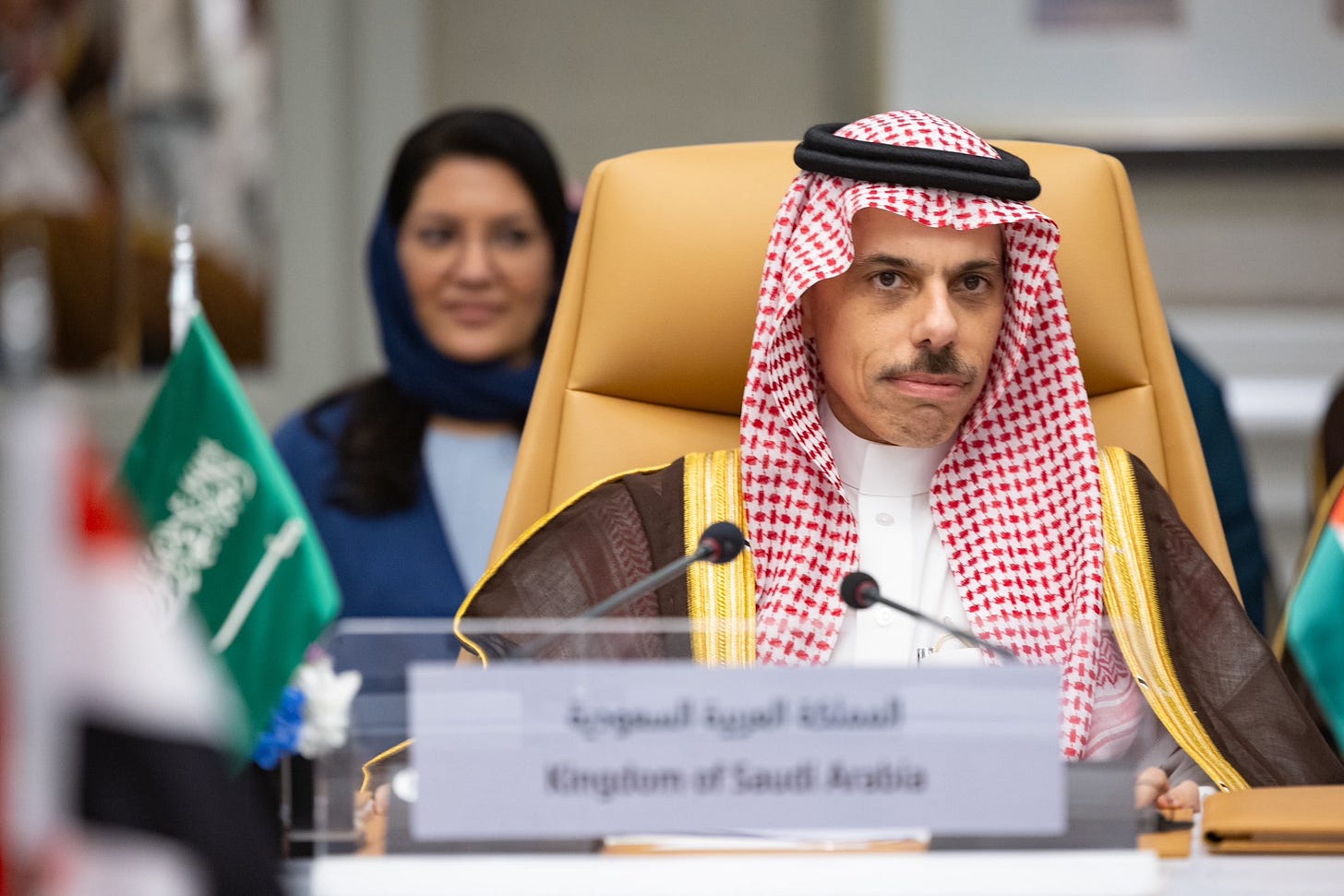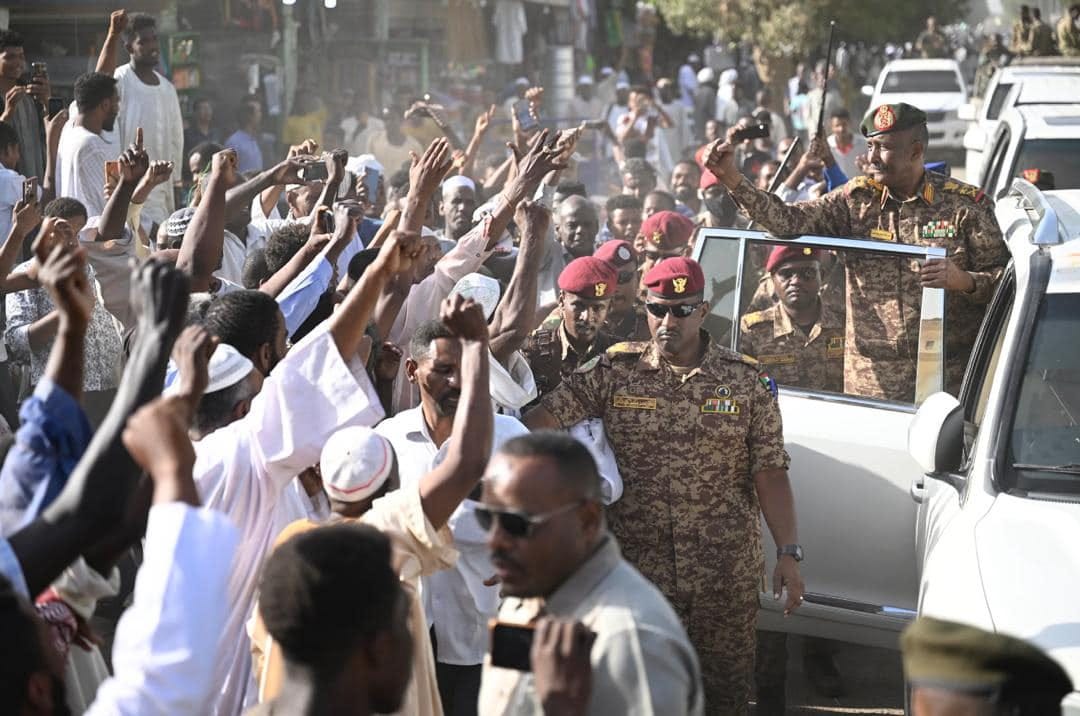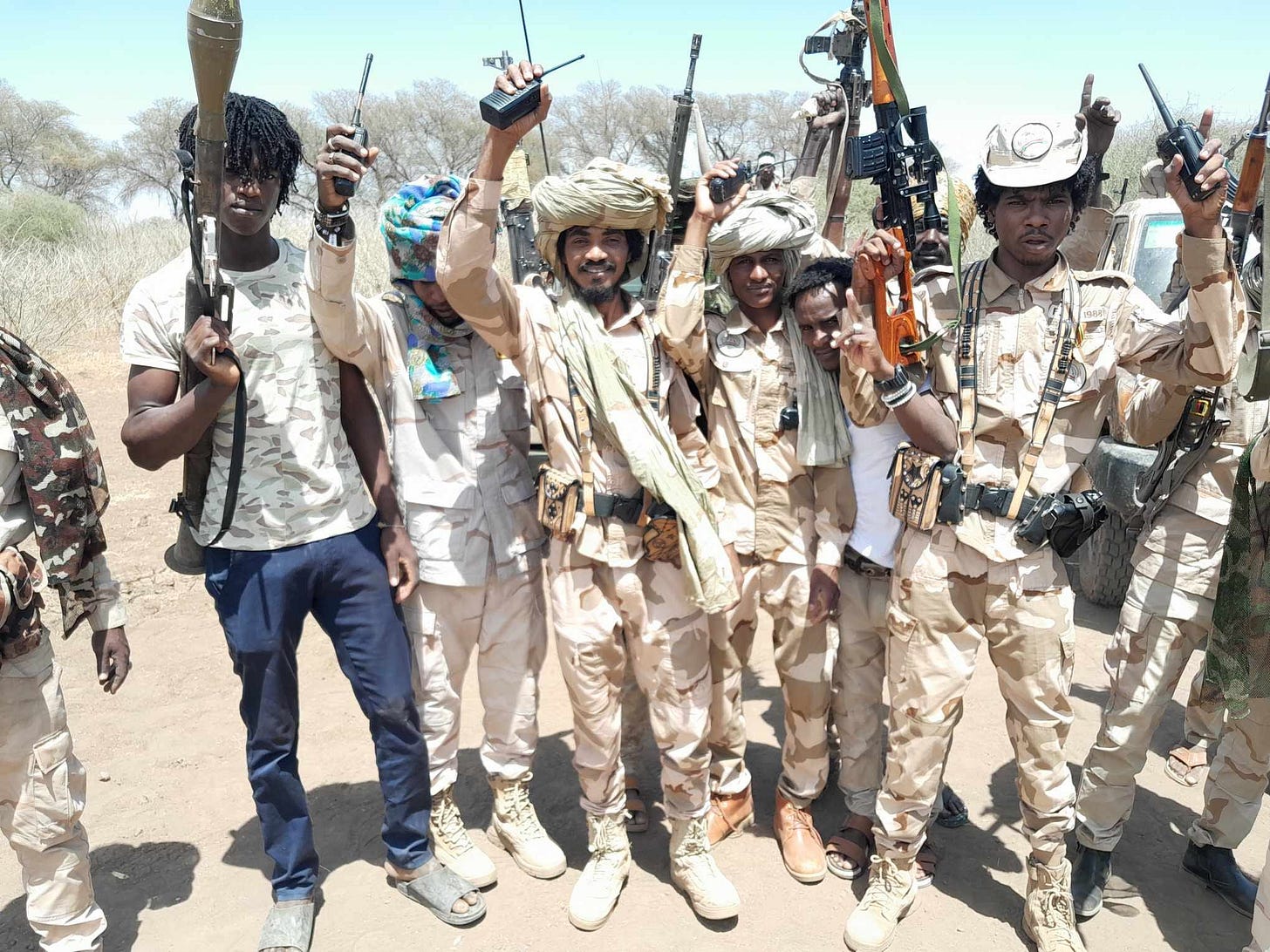Saudis contact the warring party leaders
Plus: RSF attack North Kordofan villages, killing 12 civilians
The Foreign Minister of the Kingdom of Saudi Arabia, Prince Faisal bin Farhan bin Abdullah, made phone calls yesterday to the leaders of Sudan’s warring parties, a possible step toward the resumption of negotiations in Jeddah, Saudi Arabia.
During the two calls, the top Saudi diplomat “stressed the importance of working to protect Sudan and its people from further destruction and worsening of the already difficult humanitarian conditions, further underscoring the need to give priority to the interests of the Sudanese people and to stop the fighting for the protection of state institution and the nation of Sudan, and moving forward in security,” according to a press statement from the Saudi Ministry of Foreign Affairs.
The ministry offered no other details, except that Prince Faisal discussed “the latest developments” in the country with the Sudanese military leader, Lt Gen Abdel Fattah al-Burhan, and the Rapid Support Forces leader, Lt Gen Mohamed Hamdan Dagalo.
Dagalo issued his own statement after the call, which said:
“We assured His Highness Prince Faisal bin Farhan that the other party does not have a real will to stop the war, and seeks to prolong its duration and expand its scope by obstructing the first and second Jeddah podiums, and rejecting the IGAD initiative, and all of this ultimately amplifies the scale of human suffering for our people and threatens the security and stability of our country and the region.”
Dagalo has previously said he is open to negotiations, though his troops failed to implement confidence-building measures agreed on last year, and his negotiators rejected demands to withdraw from certain areas as a precondition for a ceasefire.
For his part, Al-Burhan received the Saudi top diplomat’s phone call during a visit to Northern State, where he met with military leaders. The press organs affiliated with the Sudanese military junta didn’t mention the phone call.
In recent speeches, Al-Burhan has emphasized the need for a military victory over the RSF, rather than a negotiated solution.
Saudi officials also this week held talks with Sudan’s Minister of Finance Dr. Jibril Ibrahim. Potential Saudi fiscal support to Sudan’s military regime, which is suffering the effects of a deep economic collapse, could be an incentive to bring the junta to the negotiating table. However, Sudan is also courting Iran, and the Sudanese finance minister met with his Iranian counterpart, Ali Tayebnia, on the sidelines of the Islamic Development Bank Group meeting on April 30.
According to Sudan’s finance ministry, “In his capacity as chairman of the Post-War Reconstruction Committee, Dr. Jibril invited the Iranian Minister of Economy and Finance to visit Sudan and to benefit from Tehran’s expertise in the field of infrastructure and energy by building strategic partnerships between the two countries.”

Meanwhile, American diplomats have boosted coordination with their Saudi partners in an attempt to broker an end to Sudan’s war. The two nations co-facilitated the Jeddah peace talks last year.
The war in Gaza has dominated talks between the Saudis and Americans in recent months, but the foreign ministers of the two countries discussed Sudan during a meeting April 29, including “efforts to resume negotiations under the Jeddah platform,” according to State Department Spokesperson Matthew MIiler.
In a related development, the United States’ Special Envoy for Sudan Tom Perriello gave an update about preparations for the Jeddah talks in testimony to the United States Senate Foreign Relations Committee yesterday.
He said that the talks would begin “in the coming weeks” and would include key African and Arab regional leaders. He implied that the United Arab Emirates could be involved, without mentioning the nation by name:
“We expect all actors, even those previously playing a negative role, to now be partners in a peace deal to prioritize stability over a failed state that would have consequences for the broader region for a decade or more.”
The UAE is viewed by many as a key patron of the Rapid Support Forces, though the Gulf monarchy has denied providing military assistance to the RSF. Perriello added that the talks would focus on “aligning external political will,” and would be “designed to produce a comprehensive cessation of hostilities.”




